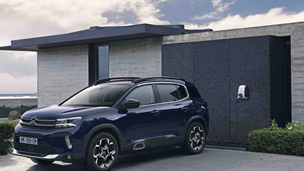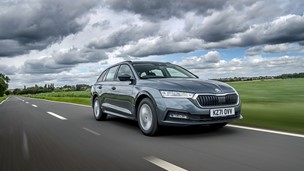For many, the journey of choosing a car can be daunting. Yet, for others, it's an exhilarating process. Regardless of where you fall on this spectrum, it’s essential to ensure that you remain practical and objective. It's all too easy to get swayed by shiny paint, innovative features, or a luxury badge. That's why we, at CarKeys.co.uk, have created this guide to help you navigate the car-buying maze.
Understanding your unique needs, from your daily routine to your budget, is crucial. This article aims to guide you through these considerations and more. Plus, for a deeper dive into topics like car insurance, road tax, and warranties, do explore our other articles.
1. Your Budget and Car Usage
Before falling in love with a car, it's vital to decide on a budget, not only for the purchase but also the subsequent running costs. Reflect on how you'll primarily use the car: short city drives, family vacations, or off-roading adventures? This will influence the type of car and the features it must have.
2.New Cars: Are They the Right Choice for You?
When deciding between a new or used vehicle, it's essential to weigh the benefits and drawbacks of each. While used cars might offer better initial value due to the steepest depreciation typically occurring in the first year, new cars have their unique set of advantages.

Buying a new car
Warranties: New cars come with comprehensive manufacturer warranties, giving you peace of mind for several years.
Customisation: Choose the exact make, model, colour, and features you desire. Tailor the vehicle to your specific tastes and needs.
Latest Technology: Benefit from the most recent advancements in safety, fuel efficiency, and onboard tech.
Reliability: With a brand-new vehicle, you don't have to worry about the car's history or hidden issues.
Considerations
Depreciation: New cars often see the most significant value drop within the first year. However, you're receiving the benefits of a brand-new vehicle and all that comes with it.
3. Intended Car Use
When determining the best car to fit your needs, it’s paramount to consider its primary purpose. Your driving patterns and the scenarios in which you'll use the car most frequently play a significant role in determining the right type of vehicle.
Commuting: For those commuting to work or school daily, especially in city or urban environments, a compact or midsize sedan or hatchback with good fuel efficiency can be ideal. These cars are often easier to manoeuvre in traffic and park in tight spaces.
Family Use: If you regularly transport a family, especially with young children, you might need a vehicle with ample seating and storage space. SUVs and minivans tend to be popular choices here, with added benefits like multiple airbags, rear-seat entertainment systems, and flexible seating configurations.
Off-Roading: If you're an adventure enthusiast and intend to go off the beaten path, you'll need a car designed for rough terrains. Vehicles with 4x4 capabilities, higher ground clearance, and rugged tyres, such as some SUVs and trucks, cater to this need.
Eco-friendly Driving: If reducing your carbon footprint is a priority, you might lean towards hybrid, plug-in hybrid, or fully electric vehicles (EVs). These cars produce fewer emissions and, in the case of EVs, none at all during operation.
Sport and Performance: Enthusiasts looking for an adrenaline rush might opt for sports cars or performance-oriented models. These vehicles typically have more powerful engines, tuned suspension, and other performance-enhancing features for spirited driving.
Business Use: If you're using your car for business, appearances might be just as important as functionality. Executive sedans or luxury SUVs, which offer a blend of performance, comfort, and premium features, are often favoured for such roles.
4. Decide on a Body style
From compact city cars like the Fiat 500 to large SUVs like the Kia Sorento, today's market offers a multitude of styles. Historically, the choice might have been between a hatchback, estate, or saloon. However, with the rise of SUVs and crossovers, there's now a car for every lifestyle and preference

5. Fuel Type
Choosing the right fuel type for your vehicle is crucial, as it can impact your car's performance, running costs, and environmental footprint. Here's a breakdown of the various fuel types available and their characteristics:
Petrol
Pros: Widely available; often provides quick acceleration; generally less expensive than diesel engines.
Cons: Lower fuel efficiency compared to diesel
Best For: City driving, short commutes, and smaller vehicles.
Diesel:
Pros: Greater fuel efficiency than petrol; produces more torque; generally longer engine lifespan.
Cons: More expensive at purchase than petrol engines; potential higher emissions
Best For: Long-distance drivers, larger vehicles, and those who want better mileage.
Hybrid (Petrol/Electric):
Pros: Combines a petrol engine with an electric motor, offering better fuel efficiency; regenerative braking system; lower CO2 emissions than solely combustion engines.
Cons: Higher initial cost; not as efficient as plug-in hybrids or full electric vehicles.
Best For: Urban and city drivers who want improved fuel efficiency and reduced emissions without range anxiety.
Electric (EV):
Pros: Zero tailpipe emissions; lower operating costs; smooth and quiet operation; often benefit from tax incentives.
Cons: Limited range compared to combustion engines (though this is improving); longer refuelling time; charging infrastructure might be limited in some areas.
Best For: Urban commuters, environmentally conscious drivers, and those with access to charging infrastructure.
6. Essential Features
Think about what's absolutely crucial in your car. Is it sat-nav, leather seats, or perhaps a specific safety feature? It's often more cost-effective to select a trim level that bundles these features than to add them separately.
7. Finance Deals
Many people opt for finance deals when purchasing a car. It's essential to look at the total cost, not just the monthly instalments. Options might seem affordable on a monthly basis, but can add up in the long run.

8. Running Costs
Beyond the sticker price, consider the ongoing expenses: fuel consumption, insurance, road tax, and maintenance. It might be tempting to stretch your budget, but a car with high running costs can quickly become a regret.
9. Test Drive Your Shortlist
Once you’ve narrowed down your choices, arrange test drives. If possible, try out the exact model and specification you're interested in. Use this opportunity to assess the car's features, comfort, and handling on various terrains.
The journey to find the right car can be long, but with careful consideration and research, you're sure to find the perfect fit. At CarKeys.co.uk, we're here to assist you every step of the way.




